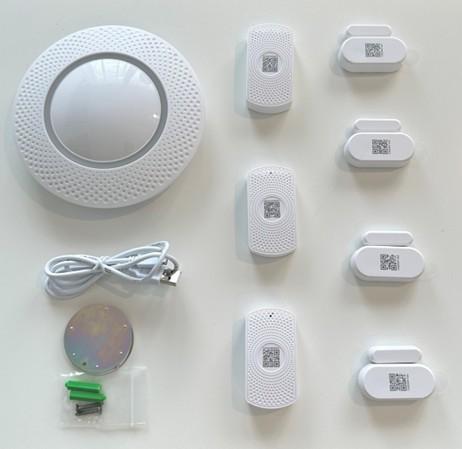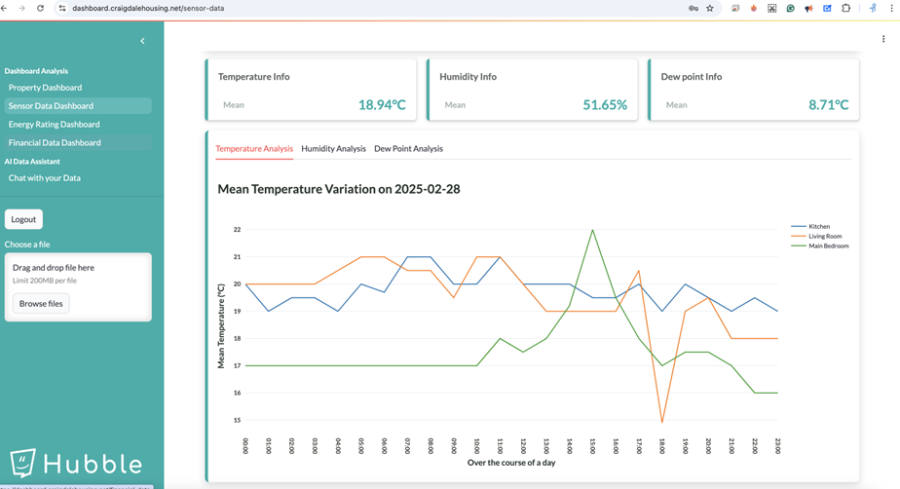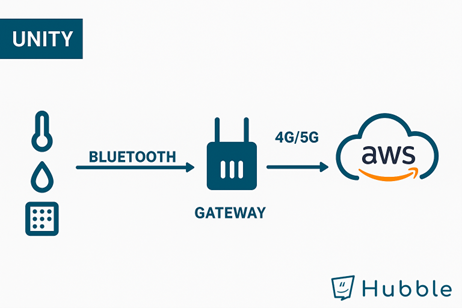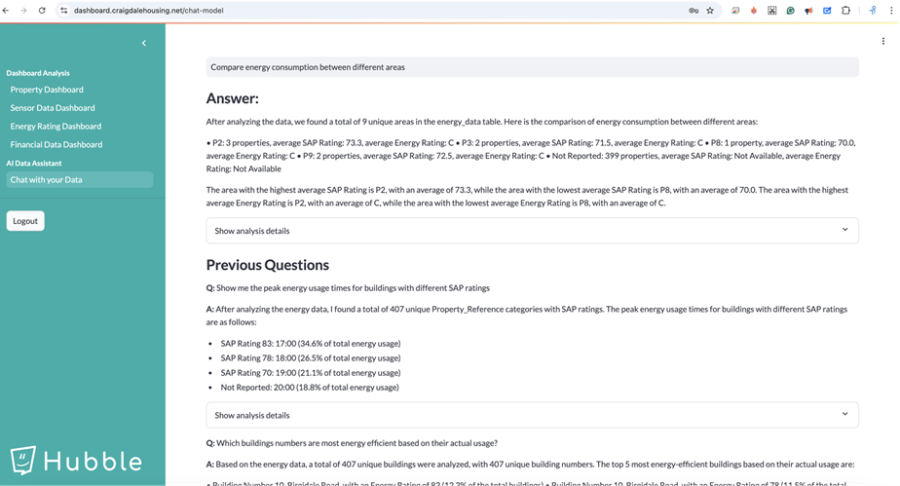TenantsHub CIC - Glasgow City Region
Tenants Hub’s Hubble platform used AI and data aggregation to empower social housing tenants, reduce mould issues by 10%, and enhance maintenance efficiency, enabled by Glasgow’s fast 5G network.
Funded by the Department of Science Innovation and Technology (DSIT) as part of the 5GIR programme, Glasgow City Region (GCR) utilised circa £750,000 to develop an innovation scheme, ensuring rapid outcomes within an 8-month period across the 5G Glasgow City Region (GCR) between September 2004 and March 2025. As part of the Smart and Connected Social Places Program, the Tenants Hub innovation project aims to power real time decision making in Housing Associations.
The Tenants Hub project introduced Hubble, an AI-powered platform designed to enhance tenant wellbeing by turning complex data into clear, actionable insights. By aggregating information from housing management systems, neighbourhood datasets, and in-home sensors, the platform created a powerful tool to help tenants understand and report issues while enabling housing staff to respond more effectively. A partnership with Craigdale Housing Association and Alpaca Global Solutions brought this technology into real homes, engaging residents directly and creating new pathways for more efficient maintenance and care.
The project’s impact included a 10% reduction in reported mould issues in monitored homes and improved maintenance processes. Layered data analysis enabled early intervention in potential problem areas, while strong tenant engagement ensured the technology was truly meeting resident needs. Glasgow’s fast 5G network provided the seamless data flow required for real-time monitoring, underlining the importance of connectivity in transforming social housing.
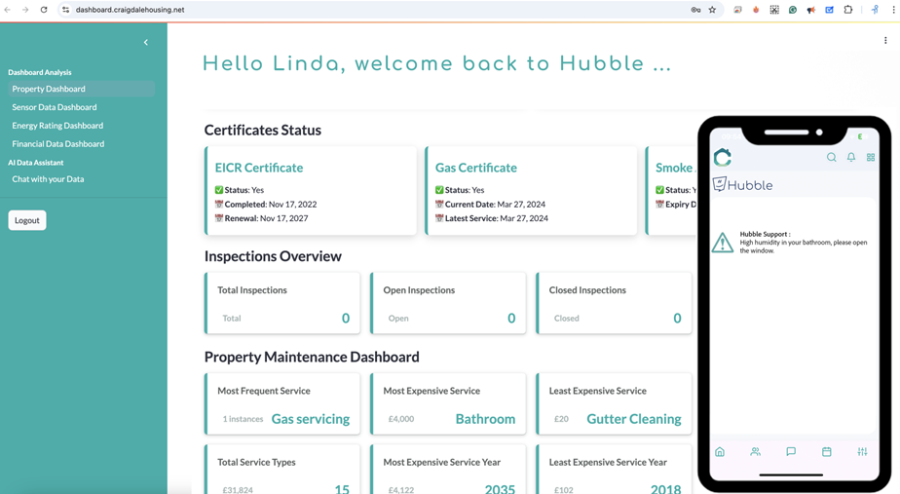
Digital Solutions for Tenant Engagement and Resident Involvement - Tenants Hub
What is the problem to be solved?
Social housing providers often operate with limited resources and outdated infrastructure, leading to reactive rather than preventative maintenance approaches. Despite good intentions, housing associations frequently struggle to access meaningful insights due to siloed data systems. Tenant experiences and property conditions are recorded across disconnected housing management software, maintenance logs, and ad hoc tenant surveys. This fragmentation prevents staff from seeing the full picture of a tenant’s experience, delaying interventions and reducing the quality of support.
What is the solution to the problem?
The Hubble project introduced an AI-powered, mobile-first platform designed to aggregate and analyse data from multiple sources, including housing management systems, IoT sensor data, property characteristics, and tenant-reported issues. Built collaboratively by Tenants Hub CIC, Craigdale Housing Association, and Alpaca Global Solutions, the platform provided a single point of access for both tenants and housing staff to engage with actionable property insights in real time.
Commercial model (Business Case)
The Hubble platform was delivered as a collaborative innovation between Tenants Hub CIC, Alpaca Global Solutions, and Craigdale Housing Association, supported by the 5G SCSP Innovation Fund £36,000. This initial funding covered key development costs, sensor deployment, stakeholder engagement, and training. The model was designed to be cost-effective and scalable, enabling Registered Social Landlords (RSLs) of varying sizes to adopt the solution based on their operational needs and digital maturity.
Benefits
Improved Tenant Wellbeing and Empowerment
Tenants who participated in the pilot reported improved understanding of their living environment and increased confidence in managing issues like damp and mould. With 90% of participants engaging actively with the Hubble platform, the project demonstrated that accessible, real-time data can empower tenants to take preventative action and engage more meaningfully with their housing provider. Feedback also suggested a greater sense of control and reassurance from being part of a digitally inclusive initiative.
Lessons Learnt
1. Data Integration is Complex but Foundational
Bringing together data from housing management systems, environmental sensors, and tenant interactions required significant effort. While APIs were the preferred method, many systems lacked open access, forcing manual CSV exports and adding time and risk. Early and detailed mapping of data sources, structures, and owners is essential. Investing time in this phase ensures smoother implementation and better data outcomes.
If you’re ready to embark on a connectivity project, we can point you to the suppliers with expertise in your sector.

